

Kalaam is a digital platform with the mission to empower the 3 Million Americans who stutter to achieve their goals. I designed Kalaam with 3 other students over a design course at CMU.
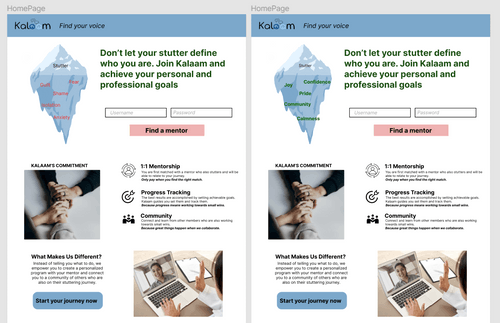
Kalaam was more than a class project for me; it allowed me to connect with like-minded individuals, get inspired by them, and ultimately desensitize myself to my stutter.
The first step was identifying the opportunity through different market trends, namely social, economic, and technological.
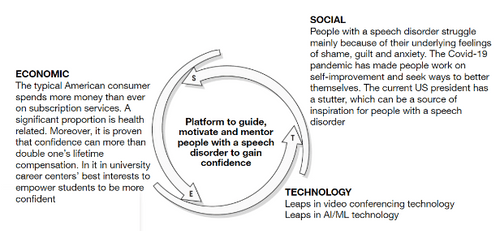
Based on initial research, we brainstormed a few ideas to implement in our first MVP:
A speech recognition software to improve on "blockage" areas without any judgment
A feedback loop system to enable members to track their progress

While getting some ideas on the whiteboard proved to be effective in the early stages of Kalaam, we realized that we needed to interview enough people to get a sense of the core problem.
Due to the emotional nature of the problem, the best way to empathize with PWS is through user interviews. The biggest challenge was finding people willing to talk to us.
I reached out to the NSA (National Stuttering Association) which connected me to some PWS mentors.
I also reached out to my own circle and was connected to a number of relevant people.


It took a few conductive storytelling sessions, some genuine conversations, and kind people, for us to realize that we had missed the big picture.
With that, we went back to the drawing board and identified Kalaam's 3 value propositions:
Kalaam's value propositions


We picked the above persona as our early-stage adopters, as they demonstrated a greater inclination towards self-improvement.
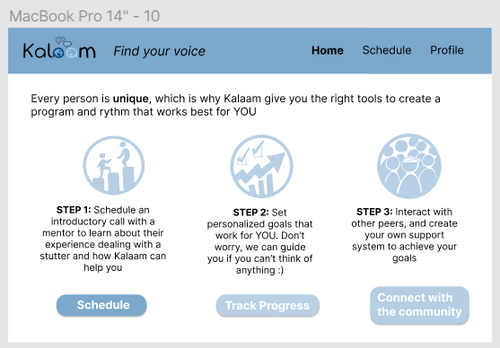
Kalaam's three-stepped approach overview
Kalaam members are initially led to an overview of the 3-stepped approach. The goal is to ensure that psychological safety is established.
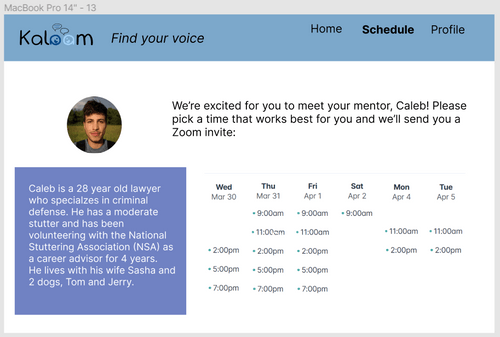
Kalaam mentor scheduling page
Members are then matched with a mentor with whom they can schedule a time to chat with. The mentor acts as a role model and offers guidance in navigating goals.
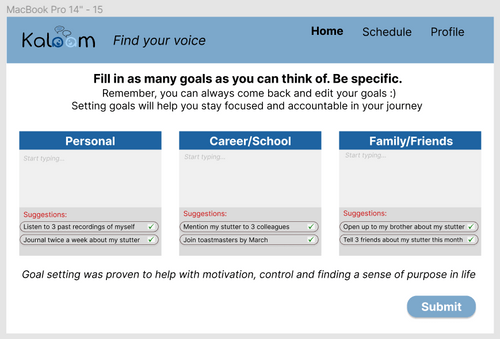
Goal-setting page
Next, members enter goals split into 3 different categories. By laying out carefully selected goals, they are more incentivized to act upon them.
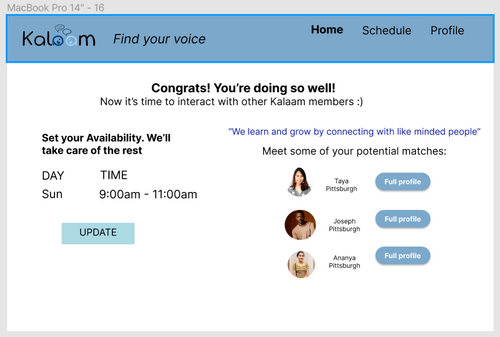
Peer-to-peer matching page
Finally, members are encouraged to interact with other Kalaam members. This is where a sense of community can be established.
In order to better showcase Kalaam to investors and early adopters, my team and I developed a poster and movie:
Building empathy by showing that we know about the underlying feelings of fear and anxiety, before showcasing the solution.
The movie follows the story of Sam, a college student who becomes a Kalaam member with the goal of acing his job interviews.
Raised $400k
in (fake) investments from angel investors who came to the final pitch
Joined BeneTalk,
a platform similar to Kalaam, as a product advisor
Became more confident
with my own stutter as I talked to more PWS

Final investor pitch. From left to right: Rami Bassil (me), Yati Agarwal, Sophie Mcgrady, Darren Kopa